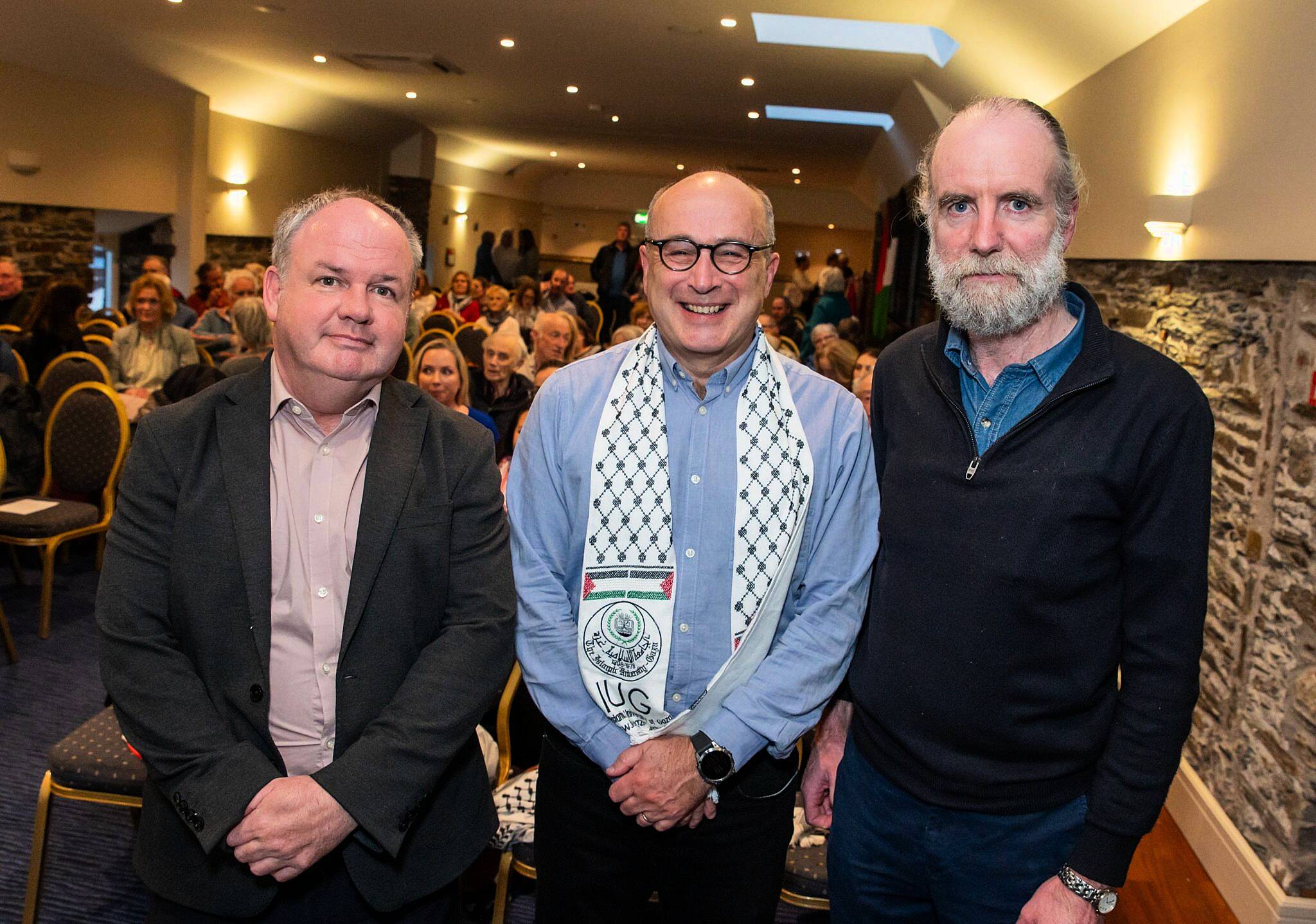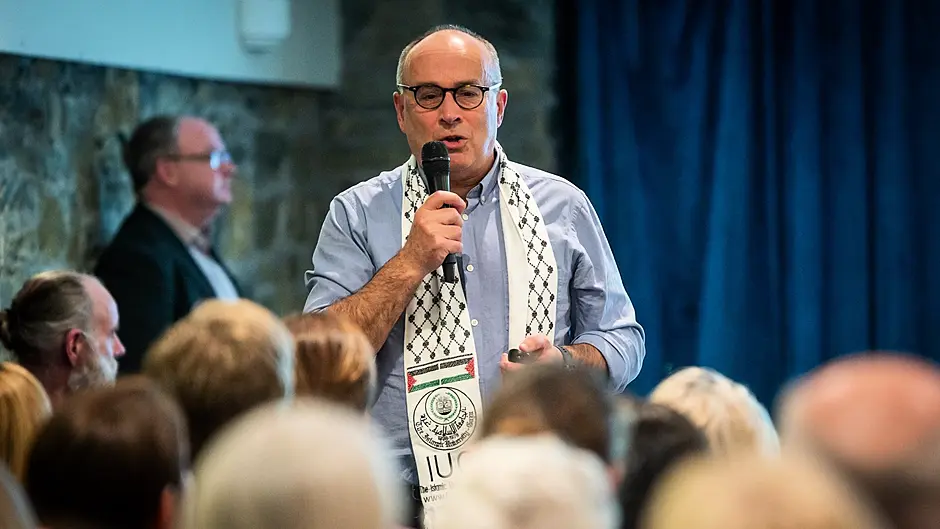Even if there’s a ceasefire in Palestine now, there’ll still be deaths from malnutrition, says surgeon Nick Maynard, recently returned from the region, which now has no fully-operational hospital.
PROFESSOR Nick Maynard knows only too well about the ugly horrors of the ongoing conflict in Gaza and the suffering that the Palestinians have endured over the past six months.
 Prof Maynard with Padraig Fitzgerald and Ger Timmons from the Project. (Photo: John Allen)
Prof Maynard with Padraig Fitzgerald and Ger Timmons from the Project. (Photo: John Allen)
Married to a woman from Kinsale, he is a regular visitor to the area and recently gave a talk to The Kinsale Peace Project about his experiences in Gaza.
As a consultant surgeon, Prof Maynard has been travelling to Gaza since 2010 to help teach medical students in the local medical schools and he also works with Medical Aid for Palestinians (MAP UK) as part of their surgical team, lecturing on cancer and keyhole surgery.
Speaking to The Southern Star, Nick said he feels obliged to be able to speak out and tell people about what’s happening in Gaza.
‘I was last there in January and am due to go back out soon. I go in with MAP UK and the team of us go under their umbrella but it’s part of the World Health Organisation (WHO) emergency medical team mechanism. They then submit a list to the Israeli Defense Forces (IDF) and they can allow or refuse people,’ said Prof Maynard.
‘I was there for two weeks and was based in Al Aqsa hospital in Gaza and it was truly awful. I know the place really well. I’ve been going there since 2010 but this was much worse than I expected.’
He said while he was there, Al Aqsa was just one of three or four hospitals in the region that were meant to be fully functioning but the reality was far different.
‘They were completely overwhelmed so they couldn’t cope with all the trauma, let alone the non-traumatic stuff, so people with cancer or heart disease aren’t being treated. None of the hospitals are functioning.’
Prof Maynard, who spent most of his time operating on major explosive injuries to the chest and abdomen, also fears that the numbers of excess deaths from non-trauma diseases will dwarf the current figure of deaths of over 30,000.
‘I’ve heard quotes like 260,000 and there’s a famine in Northern Gaza where people are dying of malnutrition. Even if there was a ceasefire today we will still have thousands of deaths from malnutrition. I could never have dreamt that some of things I have seen could exist in a civilised world.’
He describes the doctors and medical staff in the few functioning hospitals as ‘absolutely heroic’.
‘They are exhausted physically and mentally – a lot of them are completely broken. When we arrive it takes some of the heat from them, but it’s still a drop in the ocean until there is a ceasefire.’
Prof Maynard recently visited the US with doctors, to meet with members of Congress and the Biden administration to push for a ceasefire.
‘They absolutely listened and I certainly could detect a significant change of direction, but whether that is translated into a ceasefire is debatable.’ A planned ground attack on Raffa by the IDF will be apocalyptic, he is convinced.
‘They are saying they will tell people to go to safe areas, but there are no safe areas. The week after I last left the region the house we stayed in was bombed by the IDF. We are concerned about personal safety but we have such an overwhelming need to go in and help, so that dwarfs everything.’
At the Kinsale talk Prof Maynard spoke about some of the children he has treated and the deliberate targeting and dismantling of the whole healthcare system.
‘They have killed 450 healthcare workers and kidnapped about 200. They are destroying the whole infrastructure in Gaza to eventually make it inhabitable.’
He fears that the people of Gaza are losing hope and want to leave their homeland.
‘I’ve been dealing with tough things for 30 years, but I wouldn’t say I’ve got used to seeing what is going on in Gaza. You just have to switch into work mode.’








